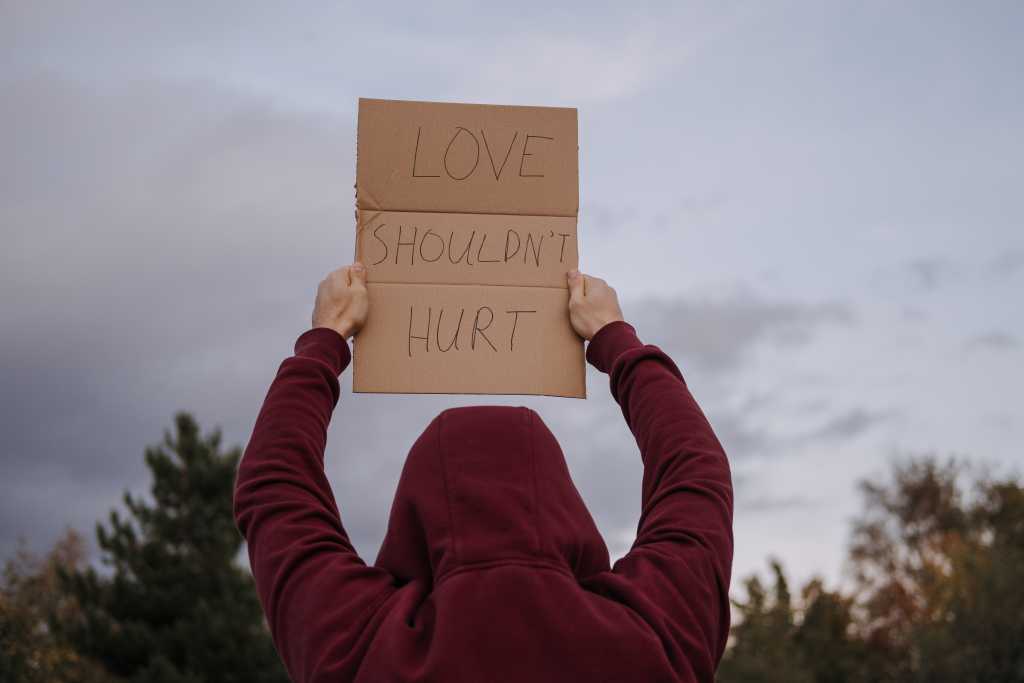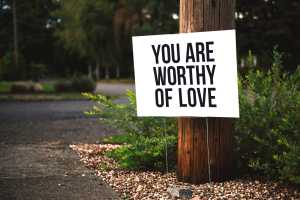Covert Signs of Abuse As Told By a Domestic Violence Survivor
I’ve been in multiple abusive relationships — three, to be exact. Only one of them turned physically violent, while the other two remained strictly emotional and mental.
Now, a decade later, I’m in a thriving marriage. It is also the first healthy relationship I’ve ever had in my life. Despite being together for ten years, I still find myself thrown off at some of my partner’s (healthy) responses to me and certain situations. You really believe me the first time I tell you something? You don’t need me to prove that I’m not lying? Or, you’re going to forgive me the first time I apologize — just like that?!
I’m not an expert, a therapist (although I am in therapy), nor any type of relationship specialist — so please don’t read this like a checklist and make any rash decisions. Instead, my hope in sharing these personal thoughts about a sensitive topic is to validate those who already know the type of situation they’re in — but aren’t quite ready to believe it.
The Subtle Red Flags
Here are what *I* personally believe are subtle red flags in a relationship. Red flags could mean you are already being abused emotionally, mentally, and/or physically; could mean these are warnings signs of abuse about to escalate; could mean your partner is testing your tolerance for abusive behaviors; or could mean you are in an unhealthy/toxic dynamic but with counseling and communication, could be overcome.
These points are not meant to be read in isolation, and this isn’t a quiz where if you have a certain “score” it means something. Rather, these are bits of wisdom I have collected throughout those three horrible relationships — and some I have learned while being loved properly. Because sometimes, you don’t know something is wrong until someone does it right.

The tricky thing is — you are the only person who can decide what type of relationship you are in, and you are the only person who can get yourself out of it. Every situation and relationship is nuanced. With that being said, I hope you find what you’re looking for in a partner, and I hope you are loved unconditionally.
1. Name-calling
I consider this “covert” because I am not referring to a partner who regularly, openly calls you names no matter the context. I am referring to a partner who does this selectively, and always blames their emotions/you for their actions, rather than taking accountability. For example — during an argument, they get heated and call you a horrible name, and almost always immediately “apologize.” It sounds like this: “You know how I get when I’m angry — I say things I don’t mean. I didn’t mean it. That’s just what I do when I’m angry; I can’t help it. Don’t take it personally.” <–THIS IS NOT AN APOLOGY. Rather, this is them admitting they just called you something they shouldn’t have, and they have zero plans on stopping, no matter how you feel about it.
2. Location Services
This one is *very* tricky because nowadays, we all have our locations shared with someone at any given time. My husband and I share our locations with each other all day, every day. But I also know that if I were to turn mine off without warning, my phone wouldn’t blow up with him demanding an explanation. He probably wouldn’t even notice for a few days at least, and when he did, it would just be a hey, your location is off? Is everything okay? But a red flag sounds more like an immediate, visceral reaction that demands your immediate attention, i.e. several texts in a row, several calls in a row, none of which contain actual concern for your well-being and instead focus on wild accusations and control. You are entitled to privacy. You do not owe anyone — anyone — access to your whereabouts if you do not want to give it. You are not doing anything “wrong” by denying this information to your partner.
3. Breaking-Up(?)
This one — whew! I lived this one repeatedly, with multiple partners. The first relationship I really didn’t think was that toxic until the breakup — and his behavior following. I broke up with him because I was a freshman in college, the relationship was maybe 7 months old, and I didn’t feel happy anymore. I did the whole “hey, I think you’re great, but I’m just not feeling this anymore. You didn’t do anything wrong — I just need to have some space right now and be single.” And *boom.* He started bawling crying, begging me on his knees to stay with him, and it terrified me. He wouldn’t let go of me, and kept me out until two a.m. comforting him despite me trying to leave multiple times. I felt trapped, and weary of further unexpected reactions. There’s a lot more to that story — but what I’m saying is in the context of abuse, my boundaries weren’t respected. I was pressured to stay the night, pressured to stay together, pressured to ignore my needs and put theirs first. If you can’t safely set a boundary, it is unacceptable. If you are staying with someone because the price of breaking up with them is too high — run.
4. Unsolicited Opinions
A kind “you look so beautiful” is not what I’m referring to here. It’s those small, snide comments said with a smile — so you’re left confused as to whether or not they intended harm — and they’re said regularly. For example: “I don’t know why you do your makeup every day. You know I like it better when you’re natural.” Or, “you are trying too much in that outfit. You look great, but…why?” Or, “I know you *think* you like romantic comedies, but you’re actually more of a classical romance person. You’re happier when you watch those.” Or, “I don’t know why you like X so much. It doesn’t make any sense to me why anyone would like that.” <–all of these statements are intended to make you doubt yourself / be self-conscious and trust that they know better than you do.
5. They Talk Badly — Very Badly — About Former Partners
It’s one thing to say your ex was strange, toxic, perhaps even abusive — but it’s quite another to start slinging names (!! name calling !!) about someone your new partner just learned existed. Especially when it comes to personal details, like sex. Any sort of slut-shaming is a HUGE red flag — if they’re comfortable enough to talk about someone they claim to have loved in such a negative light to you, they’re comfortable enough to talk about you that way, too. Divulging intimate details about anyone with the intent to humiliate them is disgusting — and a very clear indicator of emotional immaturity.
6. You Are Always A Problem
Whether it’s your habit of running late, the volume of your laugh, or your favorite comfort show — they always have something to say about it, and they always say it, loudly. You running ten minutes behind is the reason for their bad attitude not just for the length of the car ride, but for the entire day. Your genuine, loud laugh invokes annoyance rather than a smile. The sight of you re-watching Gilmore Girls under a cozy blanket, content with a warm cup of tea has them rolling their eyes, criticizing your preferences and ensuring any feelings of comfort are now replaced with a crushing self-awareness. The dress you wore today? Well that’s the reason that person in the parking lot cat-called you, and your partner told you to change before you left the house, didn’t they? Don’t complain over something *you* caused. <–this isn’t okay. None of this is acceptable, none of this is “normal,” and none of this healthy.
7. Isolation
This one is arguably not subtle at all — but the way isolation is done can be very, very discreet. I think stereotypically, isolation in abusive relationships is depicted in an obvious manner, such as in the movies where the abusive male partner tells his female partner she isn’t allowed to have male friends. This is clearly abusive. I’m referring to the quieter type of isolation: the kind where if you call your partner out on it, you look like the crazy one. For example, every time you go out to dinner with a particular friend your partner says they’re okay with it, but their behavior says otherwise. Your phone may constantly ring, they may suddenly, last-minute need you stay home, or ask you to rush home in the middle of dinner. Or, your time with your friend goes off without a hitch, but the next day you’ll pay the price via the silent treatment, passive aggressive comments, or you may find yourself fielding hateful comments about your friend for no apparent reason. And when you point out your partner’s behavior, you’re met with statements such as: “I never said you couldn’t hang out with him — don’t put words in my mouth!” Or, “I don’t care who you hang out with at all — it’s not that serious.” Or, “Not everything is about you. How I’m acting has nothing to do with last night.” <–If you feel this is the situation you are in, trust your gut. You’re not dumb, and you’re not reading it wrong.
8. Fake Concern / Gaslighting
When you stand up for yourself and firmly set boundaries, a healthy partner will hopefully respond with something like, “whoa, I can see how important this is to you. I’m listening.” But an abusive one? It’s going to sound like concern, drenched in condescension: “are you okay? You’re like, really, really upset right now, and I’m worried about you.” Or, “you’re over-reacting. You’re really angry over something that never even happened.” All the while, you’re telling your partner how they hurt you multiple times, in great detail, with receipts — and all they do is *redirect* the focus back to you. Suddenly, the conversation is about you and your mental health, and nothing about the pain they caused or the boundary they ignored.
There are many, many more warning signs of abuse than this, but these represent just a handful of what I’ve experienced throughout my life — in romantic, platonic, and familial relationships. Yes, all of the aforementioned can apply to any type of relationship, not just romantic ones!

I hope you know it is very possible to find a loving, healthy partner. I hope you know you are NOT too much. You are not asking for too much. No, your standards aren’t too high. No, you are not ridiculous. You are not dramatic. You are not a burden, you are not an annoyance, you are not the cause of anyone’s feelings or actions.
You are deserving of love, safety, and respect.
Don’t settle for anything less.
















